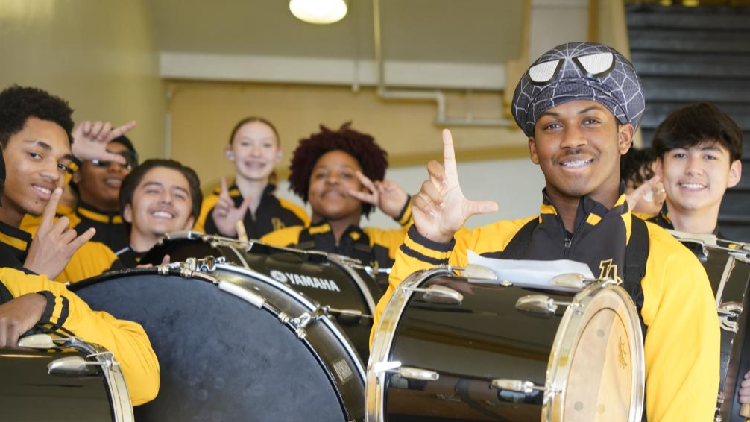Xi extends New Year greetings to U.S. high school teachers, students
[ad_1]

Chinese President Xi Jinping and his wife, Peng Liyuan, on Sunday replied to a Chinese New Year greeting card from teachers and students of U.S. Lincoln High School, extending their best wishes of the Year of the Dragon.
In a greeting card sent to the teachers and students, Xi and Peng invited them to visit China more often, including participating in exchange and study programs which invite 50,000 young Americans to China, so as to contribute to the friendship between the two peoples, especially among the young people.
Earlier, teachers and students of the school in the U.S. Washington State sent a New Year greeting card to Xi, Peng and the Chinese people, extending their best wishes for happiness and health in the new year. More than 100 teachers and students signed the card.
(Cover: The school drum band prepares to perform for a farewell ceremony at Lincoln High School in Tacoma, Washington State, the United States, Jan. 30, 2024. The campus of Lincoln High School in Tacoma of Washington State was brimming with warmth and enthusiasm on Tuesday as the students who will embark on a journey to China for an exchange program bade farewell to their peers. /Xinhua)
[ad_2]
Source link

